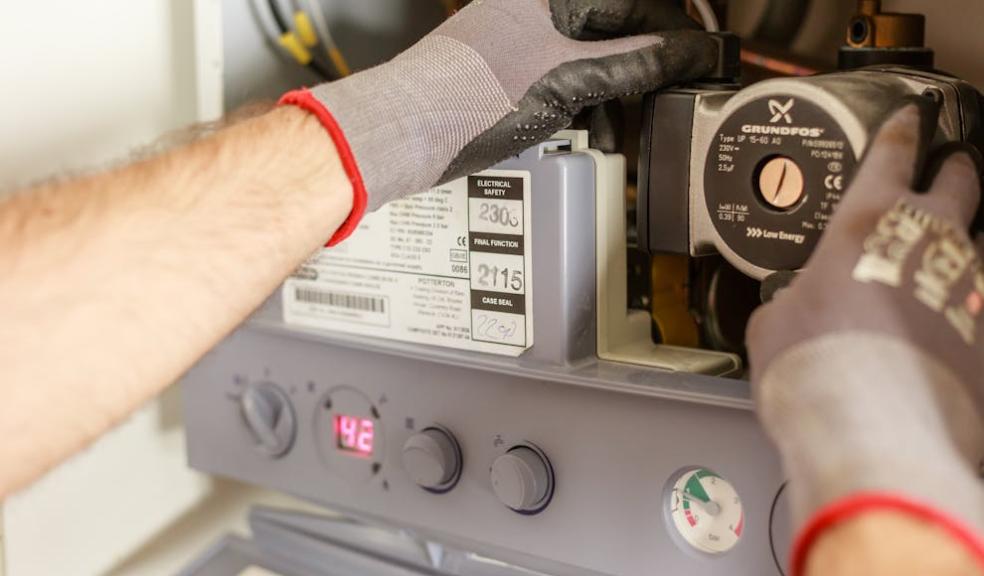
What is the Boiler Upgrade Scheme?
The Boiler Upgrade Scheme (BUS) is a UK government initiative launched in May 2022 to help homeowners transition from fossil‑fuel boilers to clean, low‑carbon heating systems such as heat pumps and biomass boilers. If you're planning to upgrade your heating system, this guide will break down what the scheme offers, who it’s aimed at, what’s not covered by the scheme, and what alternatives are available.
What is the Boiler Upgrade Scheme?
Administered by Ofgem on behalf of the Department for Energy Security and Net Zero (DESNZ), BUS provides upfront vouchers for replacing old, inefficient fossil‑fuel systems. Rather than covering the full installation cost, it applies a £7,500 grant to either air- or ground-source heat pumps, or £5,000 towards a biomass boiler. The voucher is redeemed by your installer, directly reducing your upfront cost.
The scheme covers both domestic homes and small-to-medium non-domestic buildings (up to 45 kWth per turnkey system, or a combined 300 kWth for shared ground loops) in England and Wales. Scotland and Northern Ireland run their own separate initiatives.
Origins: When and why it was introduced
BUS officially opened on 23 May 2022, replacing the previous Domestic Renewable Heat Incentive (RHI), which closed on 31 March 2022. It was created as part of the government’s broader Warm Homes Plan aimed at reducing greenhouse gas emissions from domestic heating by nearly 18% nationally and helping households face rising energy costs.
Beyond helping homeowners, BUS also acts as a stimulus for the clean-energy sector. Recent expansions include consultations to widen eligibility - for example, to include air-to-air heat pumps and novel battery solutions. The government is also investing heavily in installer training and certifications to support the move from fossil fuels.
How BUS Works
To use the scheme:
- Property eligibility: Must be a domestic or small non‑domestic building in England or Wales, connected to an energy source (gas, oil, LPG, electric). You must also have a valid Energy Performance Certificate (EPC).
- Installer involvement: A Microgeneration Certification Scheme (MCS)-certified installer must carry out the work and apply for the grant on your behalf.
- Voucher system: Ofgem issues the voucher; the installer applies the discount at the point of purchase and redeems it post-installation.
- Timing: Installation must be commissioned within 120 days of the MCS certificate date and voucher redemption also used within 120 days, or it expires.
BUS operates on a first‑come‑first‑served basis, as funds are limited each financial year. To prevent delays, Ofgem can over-allocate vouchers.
What you can get
Here’s what BUS covers:
- £7,500 for an air-source heat pump (ASHP)
- £7,500 for a ground-source heat pump (GSHP) (and water-source heat pumps)
- £5,000 for a biomass boiler
To qualify:
- You must be replacing a full fossil-fuel or electric heating system on the property (e.g., gas, oil, LPG, electric storage heaters).
- Have a system capacity ≤45 kW for individual properties (≤300 kW for shared loops).
- For biomass boilers: properties must be rural and off the gas grid (heat pumps have no such restriction).
- You cannot already be funded by another public grant or part of a new-build or social housing project.
Who can't use BUS?
The following are excluded from BUS:
- Homes in Scotland or Northern Ireland.
- New-build properties (unless eligible as a self-build) and social housing, which are supported under different schemes.
- Replacement of an existing low-carbon heating system already in place.
- Upgrades funded by any other government scheme simultaneously .
Other technical exclusions include:
- Heat networks over 300 kW
- Hybrid systems
- Solar thermal only solutions
- Partial replacements (you must be replacing a full heating system)
Alternatives if BUS doesn’t apply
If you're ineligible for BUS, don’t worry - there are plenty of other options:
Social housing & low-income owners
- Warm Homes: Local Grant helps low-income owner-occupiers and private tenants.
- Energy Company Obligation (ECO4): Energy suppliers finance targeted insulation, heating, and energy efficiency projects for low-income recipients.
General home energy schemes
- Great British Insulation Scheme (GBIS): Financial support for loft, cavity wall, and solid wall insulation to reduce energy wastage.
- Smart tariffs & VAT relief: Planning changes have removed the 1m outdoor unit rule, and VAT on energy-saving materials is cut to 0% until March 2027 - making heat pumps more affordable.
Why BUS matters
- Reduces emissions: Domestic heating is responsible for around 18% of UK greenhouse gas emissions—BUS supports cleaner, more sustainable heating alternatives.
- Lowers bills: Heat pumps can save homeowners about £100/year and structural improvements like insulation could save £200/year.
- Drives demand: The scheme helps heat‑pump adoption accelerate - BUS entries jumped 88% year‑on‑year in March 2025.
- Stimulates industry: Alongside BUS, £5m in training grants will help certify 18,000 new heat‑pump installers - expanding the green jobs market.
- Supports energy security: Reducing reliance on gas imports helps buffer households from global price fluctuations.
What to do next
- Check eligibility via www.gov.uk/apply-boiler-upgrade-scheme/check-if-youre-eligible
- Speak with MCS-certified installers for quotes.
- Get your EPC (valid for 10 years).
- Let the installer apply through Ofgem.
- Enjoy installation and claim the grant once complete.
The Boiler Upgrade Scheme is a cost effective tool for UK homeowners looking to reduce energy bills and carbon emissions. Whether you opt for an air-source heat pump, ground-source heat pump or biomass boiler, the £7.5k or £5k grant makes green upgrades more affordable.
If you don’t qualify - either due to location, income status, or property type - alternative grants and funding schemes can still provide essential support. Whether it's ECO4, insulation grants, or region-specific funding in Scotland and Northern Ireland, there are plenty of ways to enhance your home's energy efficiency.
By understanding and utilising schemes like BUS, homeowners can increase their property's value, save on fuel costs, reduce carbon footprints, and contribute to a cleaner, greener UK housing stock.









